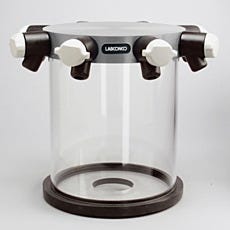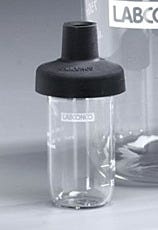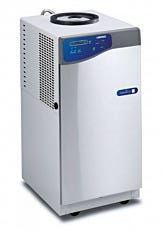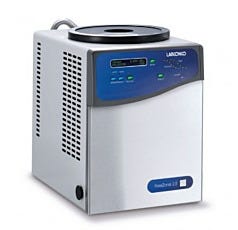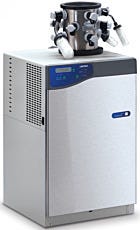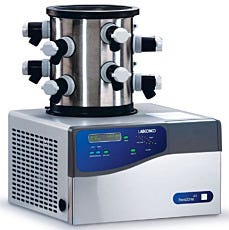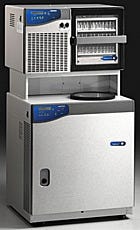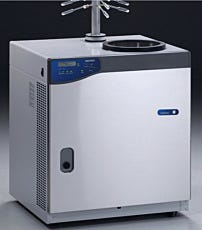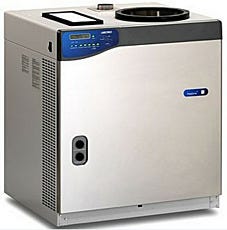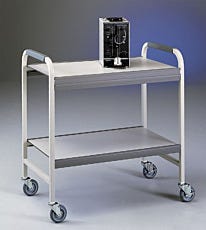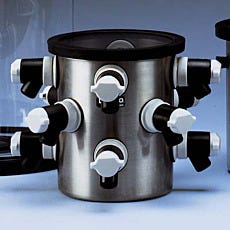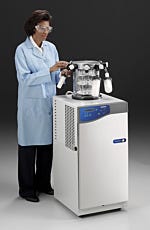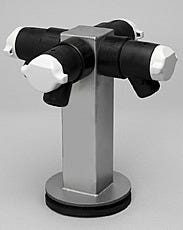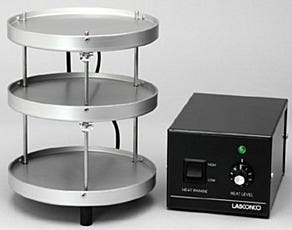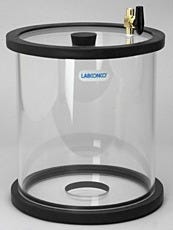- (714) 578-6016
Hours Mon - Fri, 07:00 AM - 06:00 PM (Pacific Time)
Gallery
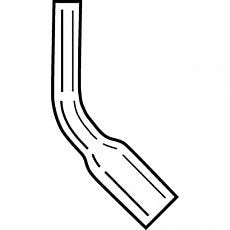
SKU: 3647-99-45
Adaptor, 0.75" flask to 0.5" valve, Borosilicate, 45 Angle, for FreeZone systems
SKU: 3647-99-45
Adaptor, 0.75" flask to 0.5" valve, Borosilicate, 45 Angle, for FreeZone systems
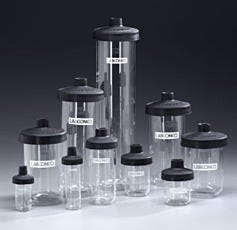
SKU: 3647-88
FreeZone Freeze Dry Glasswares by Labconco
SKU: 3647-88
FreeZone Freeze Dry Glasswares by Labconco
Clear Fast-Freeze Flasks by Labconco, compatible with FreeZone Freeze Dryers, are available in a variety of volume capacities; glass flasks withstand temperatures up to 490º C and include a rubber top, a glass bottom and filter paper.

SKU: 6923-70A-220
Lyophilizers, FreeZone, 12L, -50°C, Console, 230V
SKU: 6923-70A-220
Lyophilizers, FreeZone, 12L, -50°C, Console, 230V

SKU: 6923-75A-220
Lyophilizers, FreeZone, 12L, -50°C, Console, Stoppering Tray Dryer, 230V
SKU: 6923-75A-220
Lyophilizers, FreeZone, 12L, -50°C, Console, Stoppering Tray Dryer, 230V

SKU: 6923-86A-220
Lyophilizers, FreeZone, 18L, -50°C, Console, 230V
SKU: 6923-86A-220
Lyophilizers, FreeZone, 18L, -50°C, Console, 230V
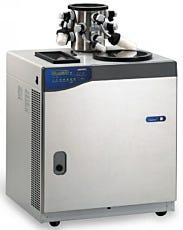
SKU: 6923-88A-220
Lyophilizers, FreeZone, 18L, -50°C, Console, Purge Valve, Mini Chamber, 230V
SKU: 6923-88A-220
Lyophilizers, FreeZone, 18L, -50°C, Console, Purge Valve, Mini Chamber, 230V

17372
Learn More: Lyophilization for Long-Term Sample Storage
17372
Learn More: Lyophilization for Long-Term Sample Storage
Lyophilization, also known as freeze-drying or cryo-desiccation, is the process by which water is removed from a sample without the need to apply heat. Many labs prefer the process of lyophilization over direct heat when it comes to long-term sample storage since freeze-drying prevents sample contamination and promotes sample stability in life science and food manufacturing applications.
Benefits of lyophilization (freeze-drying):
- Samples processed in aseptic conditions
- Does not use heat
- Less heat ensures sample (drug) stability
- Increases shelf life
- Samples can be stored at room temperature indefinitely
- Reduces weight and volume of samples; ideal for shipping
- Useful in drying perishable materials
- Does not shrink samples
Process of Lyophilization
The process of lyophilization requires sterile conditions and special equipment.
First a sample is frozen, and then the pressure of the surrounding environment is reduced. This reduction in pressure allows the water to sublimate: the direct transformation of a substance from solid to gas phase, without the application of heat. A variety of industries use lyophilization for long-term storage and shipping of samples because it helps with sample stability and purity. Despite the involved process, pharmaceutical, biotechnology, agricultural, and many high-tech industries employ lyophilization as a standard practice because heat can adversely affect samples.
How Heat Affects Long-Term Storage of Samples
Biotechnology and pharmaceutical industries frequently deal with highly labile materials. Using heat to dehydrate samples that are in constant flux can have drastic consequences on sample stability and quality. For example, the pharmaceutical industry often uses compounds such as antibodies and biologics for therapeutic treatments. These compounds are comprised of proteins with rigidly defined macromolecular structures. Any alteration in these structures can either decrease or abolish the function of the protein in vivo. Application of heat easily breaks non-covalent bonds and interactions that are responsible for holding these molecules in their precise shape, rendering the samples useless.
Dehydration by heat also has adverse effects in the food and agricultural industry. Some chemical components are extremely volatile, while others are stable at high temperatures. Using heat for dehydration can cause the loss of some chemicals. Thus, the resulting compound will be something entirely different than the starting material. In these industries, lyophilization is used for long-term storage of samples to preserve chemical composition and taste.
How Water Affects Long-Term Storage of Samples
Water possesses some very dynamic chemical properties. Two of the most salient properties are its ability to be a powerful solvent, and its change in chemical structure when frozen. Unfortunately, this makes water a poor choice for long-term storage of bio-macromolecules. Over long periods of time, water can be used to break many of the most common forms of covalent bonds found in these molecules. When water freezes, the nature of the solid structure is vastly different from that of the liquid, which can cause molecules to precipitate (i.e. become insoluble).
Lyophilization is the Best Solution
Given the adverse effects of heat and water on long-term storage of sample, lyophilization is often the best solution. Besides increasing sample shelf life, freeze-drying samples also reduces sample weight and volume, which can cut down on storage and shipping costs. Lyophilization can also remove the need to ship samples on dry ice, as the samples are more stable at room temperature. From sample stability and purity to increased shelf life and reduced costs, lyophilization is a convenient, safe and efficient method for long-term storage of lab samples.
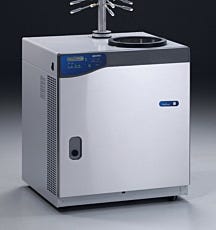
SKU: 6922-08A-220
Freeze Dry System; FreeZone Plus 6 L Cascade Console, Power Supply 220/240
SKU: 6922-08A-220
Freeze Dry System; FreeZone Plus 6 L Cascade Console, Power Supply 220/240

SKU: 6923-72A-220
Lyophilizers, FreeZone, 12L, -50°C, Console, Purge Valve, Mini Chamber, 230V
SKU: 6923-72A-220




